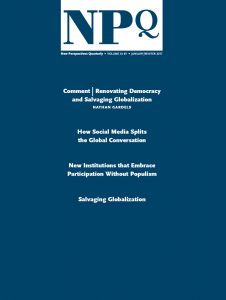Another Two Cents on England (and Crawley): Masculinity, Culture, and Tucson
As is often the case with graduate students, I just spent several months in a dissertation-induced haze and only recently had a chance to go through the latest issues of Gender & Society. Among these was the February 2011 issue that included a symposium on Paula England’s 2010 article on the “uneven/stalled gender revolution.” England’s over-reliance on the structural and institutional aspects of gender was underscored by several savvy pieces of Sociology, including a response by Sara Crawley that emphasizes...




1540-6237/asset/SSSA_Logo-RGB.jpg?v=1&s=c337bd297fd542da89c4e342754f2e91c5d6302e)
